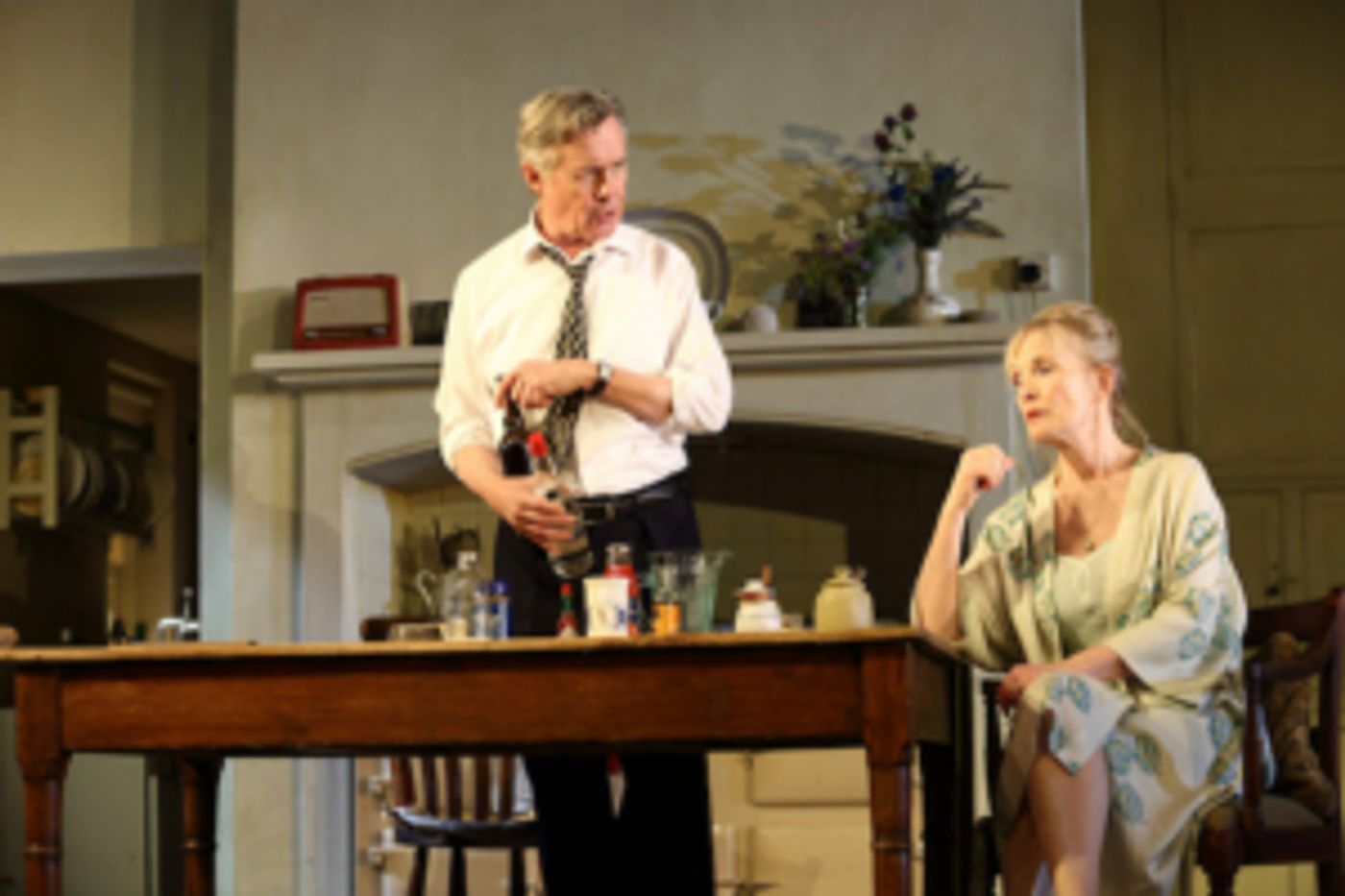Review: HANSARD, National Theatre

![]() Can any fictional political tale top the latest dramatic entry in the Brexit Chronicles? Actor Simon Woods has a good crack at it with his debut play, featuring the powerhouse pairing of Alex Jennings and Lindsay Duncan and sure directorial hand of Simon Godwin. And if a few sharp lines have extra fizz, thanks to the current bewildering context of British politics, well, so much the better.
Can any fictional political tale top the latest dramatic entry in the Brexit Chronicles? Actor Simon Woods has a good crack at it with his debut play, featuring the powerhouse pairing of Alex Jennings and Lindsay Duncan and sure directorial hand of Simon Godwin. And if a few sharp lines have extra fizz, thanks to the current bewildering context of British politics, well, so much the better.
Jennings is upper-class Tory MP Robin Hesketh: loyal member of Thatcher's Government, but never made it to the top - thanks in part, he implies, to his off-message second wife, Diana, who has left-wing leanings. His return home to the Cotswolds for the weekend heralds a major confrontation on both domestic and policy fronts.
Woods has plenty of fun with the 1988 setting and its contemporary parallels. Brexit xenophobia is prefigured by Robin's fears about foreign foxes coming through the Channel Tunnel to rip up his garden, while the British public is regarded as a "liability", Labour keeps putting up beardy geography teachers as ineffectual leaders, the Tories trade on fear and fake nostalgia, and voters just keep asking to be screwed by yet another Old Etonian Prime Minister.
The big inciting incident is Robin's support for Section 28. It stems from his genuine belief that sexuality is a choice, and that it's kindest to steer people towards joining the majority and having an easier life. His dismissal of identity politics shows how blinkered you become when you only occupy rarified worlds - Eton, Oxford, the House of Commons - and how the confidence that instils can be mistaken for actual wisdom.
Woods has a good eye for detail, understanding how coded references differentiate between British classes, educational systems and social types. He also undercuts the cosy privilege of the ruling elite by exposing its emotional hollowness: how Robin's parents' marriage was a sham, and his is now going the same way; and how a particular strain of narrow-minded Tory paternalism can prove fatal - on both a national and an individual level.
There is a tendency, however, to over-explain and heavily signpost - unnecessary when you have actors of this calibre. Woods could do with trusting his audience more; we don't need all the metaphors and allegories spelled out. The climactic reveals would land more effectively with fewer hints and teases, and more time spent on the psychological aftermath.
Similarly, while the performative quality of the couple's exchanges makes sense as the politician used to speechifying and the spouse trying to match him, its archness can sometimes be wearying. It's a relief when it's dropped for a moment of shatteringly raw emotional honesty.
However, Jennings and Duncan are a truly dynamic duo. No one does withering disdain quite like Duncan, and she keeps Diana fascinatingly unpredictable at all times - is she sparring, seeking attention, hungover, or truly one lunge away from the cliff edge? Her dismantling of Robin's arguments is superbly done (one look alone silences his blustering "It was a different time" defence of his father's secret second family), as is the knowledge that she can't give in to passion or risk being dismissed as "hysterical".
Jennings gives us this week's second Old Etonian so used to getting his way that opposition simply bewilders him. It's telling that it's not Diana's debating the issues that so unbalances him, but her upsetting of the domestic norms - why isn't she dressed and getting lunch on the table for their imminent guests? Appearance of control is vital. He also laces Robin's unsavoury views with just enough complacent charm to show how his Party successfully sells these ideas to the public.
There's a nice meta strand of exploring how important stories are - whether a national myth, the demonisation of a useful enemy, or the way we outwardly present a troubled marriage. Diana urges Robin to find empathy for others via novels or plays; he prefers to think of his achievements recorded in Hansard, the official report of parliamentary debates. The play's climax hinges on two other forms of record, which have a major impact on Robin and Diana's own stories.
Hildegard Bechtler's setting is a marvel of cream-hued Cotswolds smug contentment, featuring such telling details as the Aga on which Robin laboriously makes toast, and the enormous dining table - sold as the heart of the family's household, now covered in clutter.
Though deliciously witty, Woods' play ultimately illustrates the damage of bad-faith argument, judgement without compassion, and buying a sales pitch based on doctored memories. The trappings of a good life are finally exposed as just that: a stage set, and two unhappy players cut adrift from one another.
Hansard at the National Theatre until 25 November, and broadcast via NT Live on 7 November
Photo credit: Catherine Ashmore
Reader Reviews

Videos

